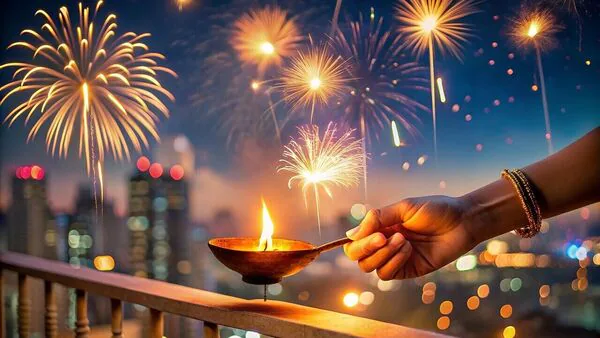
Diwali 2025 Calendar: 5 Days Of Deepawali Festival - All You Need To Know
Spanning five days, each day of Diwali is marked by its own unique rituals, significance, and stories, all rooted in tradition and mythology.
Here's a look at what each day represents:
DhanterasDiwali festivities commence with Dhanteras, a highly auspicious event associated with wealth and prosperity. The word“Dhan” means wealth, and“Teras” refers to the thirteenth day of the lunar fortnight.
On this day, people clean and decorate their homes, buy gold, silver, or utensils, and worship Lord Dhanvantari, the god of health, and Goddess Lakshmi.
It marks the beginning of the festive shopping and is believed to bring good fortune and financial growth.
Also Read | Festival blues: India's gig economy stretched as worker wages spike 40% Naraka Chaturdashi or Choti DiwaliNaraka Chaturdashi, also known as Choti Diwali, celebrates Lord Krishna's victory over the demon Narakasura, symbolising the removal of ignorance and evil.
On this day, devotees wake up early, take an oil bath, and apply fragrant pastes, a ritual believed to purify the body and soul. Homes are lit with diyas (oil lamps) and decorated with rangoli designs, setting the tone for the grand Diwali night ahead.
Lakshmi Puja (Main Diwali Day)The third day is the most significant and widely celebrated - Lakshmi Puja or the main Diwali day.
It is believed that Goddess Lakshmi, the goddess of wealth, visits homes that are clean and well-lit. Devotees perform elaborate pujas, light diyas, and decorate every corner with lamps and candles to welcome her. Families exchange gifts and sweets, and fireworks light up the night sky, symbolising the victory of light over darkness.
Also Read | A Diwali make-up guide inspired by runway trends Govardhan Puja or AnnakutGovardhan Puja, the fourth day of the Diwali festivities, commemorates the day Lord Krishna lifted the Govardhan Hill to protect villagers from torrential rains.
Devotees prepare large feasts of vegetarian food, called Annakut, and offer them to Lord Krishna in gratitude. In some regions, this day is also celebrated as Padwa or Bali Pratipada, symbolising love and togetherness between husbands and wives.
Bhai DoojDiwali festivities conclude with Bhai Dooj, celebrating the bond between brothers and sisters.
Sisters perform aarti, apply a tilak on their brothers' foreheads, and pray for their long life and prosperity. In return, brothers give gifts and promise to protect their sisters.
Also Read | Give recycled Diwali gifts a warm welcome to our circular economyTogether, these five days of Diwali weave a tapestry of devotion, joy, family bonding, and renewal, reminding everyone that even the smallest light can dispel the deepest darkness.
Legal Disclaimer:
MENAFN provides the
information “as is” without warranty of any kind. We do not accept
any responsibility or liability for the accuracy, content, images,
videos, licenses, completeness, legality, or reliability of the information
contained in this article. If you have any complaints or copyright
issues related to this article, kindly contact the provider above.


















Comments
No comment